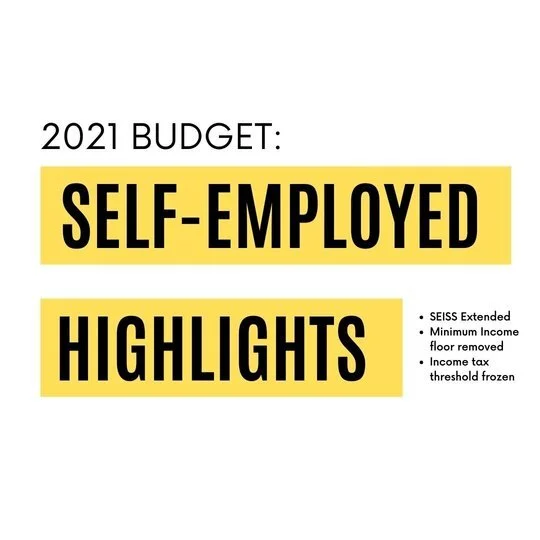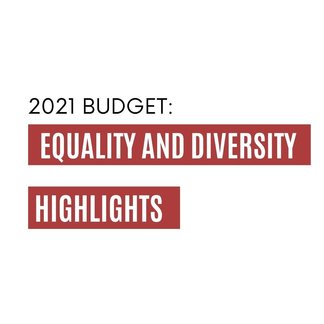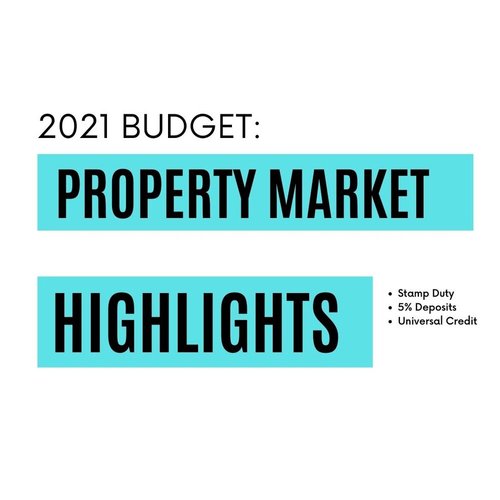Understanding Stamp Duty
What it is and how it works
Stamp Duty Land Tax (SDLT) is a tax imposed by the United Kingdom government on property transactions. It is payable when purchasing land, buildings, or interests in land over a certain price threshold. The tax is calculated based on the purchase price or consideration of the property.
SDLT rates are typically tiered, meaning that different rates apply to different portions of the property's value. The rates and thresholds can change over time, so it's essential to refer to the latest government guidance or consult a legal professional or tax advisor for up-to-date information.
There are specific rules and exemptions that may apply in certain circumstances, such as first-time buyers, certain types of property, or transfers within families. Additionally, there may be different rates and rules for residential and non-residential properties.
It's important to note that the information provided here is a general overview, and the specific details and calculations can be complex. If you are involved in a property transaction, it's advisable to seek professional advice from a legal professional or tax advisor who specializes in the UK stamp duty regulations.
The eligibility for first-time buyer stamp duty land tax relief can vary depending on the jurisdiction you are in. In the United Kingdom, for example, the relief is typically available to individuals who are purchasing their first residential property and meet certain criteria. Generally, if you are not listed as an owner on the title deeds and do not have any other property ownership, you may potentially be eligible for first-time buyer relief.
What is the first-time buyer discount and who qualifies?
In the United Kingdom, first-time buyers may be eligible for a Stamp Duty Land Tax (SDLT) relief or discount. The specific eligibility criteria can vary and it's important to refer to the latest government guidance or consult a legal professional or tax advisor for the most accurate and up-to-date information. However, here are some general guidelines:
Definition of a first-time buyer: Generally, a first-time buyer is someone who has never owned a freehold or leasehold interest in a property before. This includes both residential and non-residential properties.
Purchase price threshold: The relief or discount typically applies to properties below a certain purchase price threshold. The threshold can vary, and it's essential to check the latest information to determine the current limit.
Residential property: The relief or discount generally applies to residential properties. Non-residential or mixed-use properties may not qualify.
It's important to note that there may be additional conditions or requirements that must be met to qualify for the first-time buyer relief. For example, the property must be intended as the buyer's main residence, and there may be restrictions on previous property ownership by family members or partners.
To determine your specific eligibility for the first-time buyer discount or relief, it is recommended to consult with a legal professional or tax advisor who can provide personalized advice based on your individual circumstances and the latest regulations.
If I am not named on the Deeds of a property -but I am on the mortgage, can I claim first-time buyer discount?
In general, the eligibility for first-time buyer relief regarding stamp duty land tax is based on property ownership rather than mortgage participation. If your name is not on the title deeds, it may affect your eligibility for the relief, even if you are named on the mortgage.
It's important to note that eligibility criteria can vary depending on the jurisdiction, so it's recommended to consult with a legal professional or tax advisor who is knowledgeable about the specific regulations in your area. They will be able to provide you with accurate and up-to-date information regarding your eligibility for first-time buyer relief in relation to your specific circumstances.
However, it is important to note that specific requirements and regulations can differ between jurisdictions, so it's always a good idea to consult with a legal professional or tax advisor who is familiar with the laws in your specific area. They will be able to provide you with accurate and up-to-date information regarding your eligibility for stamp duty land tax relief as a beneficiary of a property.
If I am married to someone who owns a property can I claim first-time buyer discount
If you are married to someone who has purchased a property, it can potentially affect your eligibility for the first-time buyer discount or relief in the United Kingdom. Generally, if either you or your spouse has previously owned a property, it may disqualify you from claiming first-time buyer benefits.
The eligibility for first-time buyer relief typically requires that neither you nor your spouse has owned a property before. This includes both freehold and leasehold interests in any property. If your spouse already owns a property, it could be seen as joint ownership or shared interest, and it may impact your eligibility.
It's important to note that specific rules and exemptions can vary, and it's crucial to consult with a legal professional or tax advisor who specializes in UK property regulations. They will be able to provide you with accurate and up-to-date advice based on your specific situation and the latest government guidelines.
What are the thresholds for first time buyer discount
As of my knowledge cutoff in September 2021, the thresholds for the first-time buyer discount or relief in the United Kingdom were as follows:
England and Northern Ireland:
For residential properties, the threshold for first-time buyer relief is £300,000. This means that if the purchase price is £300,000 or below, no Stamp Duty Land Tax (SDLT) is payable. For properties priced between £300,001 and £500,000, a reduced SDLT rate is applicable.
Scotland:
The first-time buyer relief in Scotland is known as the First-Time Buyer Relief (FTBR). As of September 2021, the threshold was £175,000. If the purchase price is below this threshold, no Land and Buildings Transaction Tax (LBTT) is payable. For properties priced between £175,001 and £250,000, a reduced LBTT rate is applicable.
Wales:
The first-time buyer relief in Wales is known as the First-Time Buyers Relief (FTBR). As of September 2021, the threshold was £180,000. If the purchase price is below this threshold, no Land Transaction Tax (LTT) is payable. For properties priced between £180,001 and £250,000, a reduced LTT rate is applicable.
Please note that these thresholds are subject to change, and it's essential to refer to the latest government guidance or consult a legal professional or tax advisor for the most up-to-date information regarding the first-time buyer discount thresholds in the specific region you are considering.
What might affect first time buyer discount?
Several factors can affect your eligibility for first-time buyer discount in the UK. While the specific criteria can vary depending on the region and the type of relief, here are some common factors that may impact your eligibility:
Previous property ownership: Generally, if you or your spouse/partner has owned a property before, you may not qualify as a first-time buyer. This includes both freehold and leasehold interests in any property, regardless of whether it was a residential or non-residential property.
Shared ownership: If you have already purchased a property through a shared ownership scheme, it might affect your eligibility for first-time buyer relief. Shared ownership typically involves purchasing a portion of the property while renting the remaining share, and it can disqualify you from claiming first-time buyer benefits.
Property value: The relief or discount may have a threshold based on the purchase price of the property. If the property you are buying exceeds the specified threshold, you may not be eligible for the full relief or discount, or it may be reduced.
Property usage: The relief or discount may only apply to residential properties. Non-residential or mixed-use properties might not qualify.
Relationship to the seller: Some schemes or regions have specific rules regarding transactions within families, such as parents selling a property to their child. In such cases, the relationship between the buyer and seller can affect eligibility.
It's crucial to remember that eligibility criteria can change over time, and specific rules can differ depending on the region. It's advisable to consult the latest government guidance or seek advice from a legal professional or tax advisor who specializes in UK property regulations to determine your specific eligibility for first-time buyer relief.
For purposes of first-time buyer discount, what may be regarded as “previous ownership”
In the context of first-time buyer discounts or reliefs, "previous ownership" typically refers to any form of legal ownership of a property, whether it is a freehold or leasehold interest. It generally includes both residential and non-residential properties.
Here are some examples of situations that may be considered as previous ownership:
Owning a property outright: If you have previously owned a property as the sole owner or joint owner, whether it was your main residence, a second home, or an investment property, it is likely to be considered as previous ownership.
Shared ownership: If you have participated in a shared ownership scheme where you purchased a portion of a property while renting the remaining share, it may be regarded as previous ownership. Shared ownership usually grants you a leasehold interest in the property.
Beneficial interest in a property: If you have had a beneficial interest in a property without being named on the title deeds, it can still be considered as previous ownership. For example, if you were a beneficiary of a trust or had a financial stake in a property through a partnership or agreement, it may be deemed as previous ownership.
It's important to note that the specific rules and interpretations of previous ownership can vary based on the jurisdiction and scheme. It's advisable to consult the latest government guidance or seek advice from a legal professional or tax advisor who specializes in UK property regulations to determine how your particular situation might be regarded for the purpose of first-time buyer discounts or reliefs.
For first- time buyer discount purposes, what is regarded as a beneficial interest?
In the context of first-time buyer discount applications, "beneficial interest in a property" refers to having a financial or beneficial stake in a property, even if your name is not listed on the title deeds. It means you have a right to enjoy the benefits or profits derived from the property.
Identifiers of beneficial interest in a property can include, but are not limited to:
Trust arrangements: If you are a beneficiary of a trust that owns the property, it indicates a beneficial interest. A trust is a legal arrangement where one party (trustee) holds and manages the property for the benefit of another party (beneficiary). Even if your name is not on the title deeds, being named as a beneficiary of a trust indicates your beneficial interest.
Partnership or joint venture agreements: If you are a party to a partnership or joint venture agreement related to a property, it can imply a beneficial interest. This could involve an agreement where you have a financial stake or share of the profits or proceeds from the property.
Financial investment or contribution: If you have made financial contributions towards the purchase or improvement of a property, even if you are not listed as an owner, it can establish a beneficial interest. This can include providing funds for the down payment, mortgage payments, or renovations.
It's important to note that the specific requirements and interpretations of beneficial interest can vary depending on the jurisdiction and scheme. To determine the eligibility for first-time buyer discounts or reliefs based on beneficial interest, it is recommended to consult the latest government guidance or seek advice from a legal professional or tax advisor who specializes in UK property regulations. They will be able to assess your specific circumstances and provide accurate information and guidance.
How to know if you legally own a property?
To determine if you legally own a property, you can take the following steps:
Check the Land Registry: In the United Kingdom, you can search the Land Registry to confirm the legal ownership of a property. The Land Registry is the official government body responsible for maintaining records of land and property ownership. You can conduct a search online or request an official copy of the title register and title plan for the property in question. These documents will provide information about the current registered owner(s) of the property.
Review the title deeds: If you have physical or electronic copies of the title deeds for the property, examine them to determine if your name is listed as the legal owner. Title deeds are legal documents that provide evidence of ownership and may include information about the property's boundaries, restrictions, and rights of access.
Consult legal professionals: Seek advice from a legal professional, such as a conveyancer or solicitor, who specializes in property law. They can review the documentation and guide you on the legal ownership of the property. They may also conduct searches and investigations to ensure the property ownership is properly established.
Review purchase documents: If you have purchased the property, refer to the purchase documents, such as the sale contract, completion statement, and mortgage agreement. These documents should provide information about the transfer of ownership and your legal position as the owner.
Check with mortgage lender: If you have a mortgage on the property, contact your mortgage lender or loan provider. They can provide information about the legal ownership and any encumbrances related to the property.
It's important to consult with legal professionals or experts who specialize in property law to obtain accurate and up-to-date information about the legal ownership of a property. They can provide advice and guidance based on your specific circumstances and the relevant laws and regulations.
Do I have to pay stamp duty if I am added to the property deeds?
Adding a name to the land ownership deeds, such as transferring or adding someone as a co-owner, can potentially trigger a Stamp Duty Land Tax (SDLT) liability in the United Kingdom. The specific circumstances and details of the transaction will determine whether SDLT is payable.
The general rule is that SDLT may be applicable when there is a consideration or payment involved in adding a name to the deeds. Consideration can include monetary payments, assuming a mortgage or other liabilities, or the transfer of a share of the property.
However, there are certain exemptions or reliefs that might apply in specific situations, such as adding a spouse or civil partner's name. It's crucial to consult with a legal professional or tax advisor who specializes in UK property regulations to determine the specific SDLT implications and any available exemptions or reliefs in your particular case.
They will be able to review the details of the transaction, consider any applicable exemptions or reliefs, and provide accurate advice regarding SDLT obligations and any potential tax liability.
If I am added to a parents property deeds, will stamp duty be due?
If you are added to your parents' property deeds, whether or not stamp duty is due will depend on the specific circumstances of the transaction. Here are a few considerations:
Purchase consideration: If you are being added to the property deeds without paying any consideration, such as receiving a share as a gift or inheritance, it is less likely that stamp duty will be due. In such cases, the transaction may be considered a transfer of equity rather than a purchase, and stamp duty may not apply.
Consideration involved: If there is a monetary payment or other form of consideration involved in adding your name to the property deeds, it could potentially trigger a stamp duty liability. The amount of stamp duty payable would depend on the value of the consideration and the applicable rates and thresholds at the time of the transaction.
Available exemptions or reliefs: There may be specific exemptions or reliefs available for certain family transactions, such as the transfer of property between parents and children. These exemptions or reliefs can reduce or eliminate the stamp duty liability. It's important to review the latest government guidance or consult a legal professional or tax advisor who specializes in UK property regulations to determine if any exemptions or reliefs apply in your particular case.
It's important to note that stamp duty rules and regulations can be complex, and they may vary based on factors such as the region and the specific circumstances of the transaction. It is recommended to seek professional advice to determine the stamp duty implications and any potential liability when being added to your parents' property deeds.
Need more help?
If you need any more help regarding all tax matters in the U.K. and U.S. feel free to get in touch!
















































